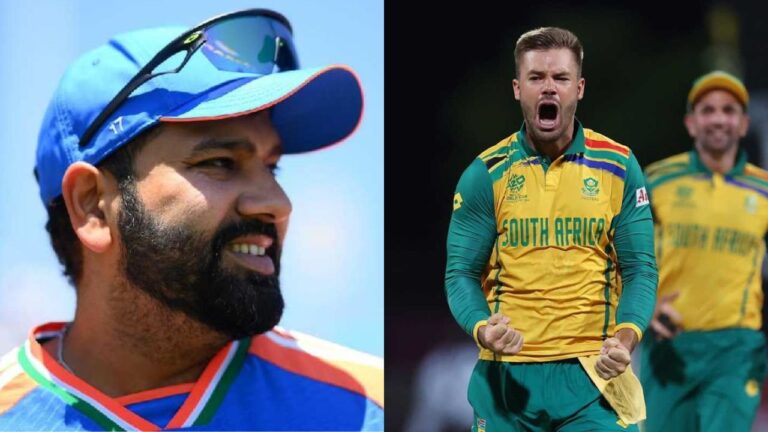
The teams of India and South Africa will lock horns in the final of the ongoing ICC Men’s T20 World Cup 2024. The highly-anticipated match is scheduled to take place on Saturday (June 29) at the Kensington Oval in Barbados.
Ahead of the title decider, there is much confusion about the playing conditions for the T20 World Cup final. The reason is the different playing conditions for the two semi-finals. The first semi-final between South Africa and Afghanistan was played on a reserve day.
However, the second semi-final between India and England did not have any reserve day. Instead of a reserve day, the ICC had reserved 250 minutes of extra time for the match. What about the final? Is there a reserve day for the final or has the ICC again reserved extra time for the match? What will be the result of the match if rain cancels the match on June 29?
The weather forecast is not encouraging for the final. According to reports, rain could affect the match. There is a possibility of rain throughout the day.
Breaking🚨
Barbados🇧🇧 right now! She is pouring rain 🌧@debasissen @ishaanshahane11 @ThumsUpOfficial #INDvsSA #WorldT2024Cup #T20WorldCup pic.twitter.com/DBOVieoHce
-RevSportz Global (@RevSportzGlobal) June 28, 2024
Playing Conditions for the 2024 ICC T20 World Cup Final between India and South Africa:
The match is scheduled to start at 10:30 am. Depending on the playing conditions, the full game can take place even after a delay of 4 hours and 10 minutes from the start time. In Indian Standard Time, this means that 20 full overs per game can start at 12:10 am. There is also a reserve day for the game.
“If play is interrupted on the scheduled day, the umpires will use the extra time available and, if necessary, reduce the number of overs to try to achieve a result on that day. In making their decisions in relation to ground, time and light, umpires will attempt to maximize play on the scheduled match day to achieve a result on that day, as if there were no Reserve Day available,” the ICC guidelines state.
For a result to occur, both teams must play a minimum of 10 overs each. If the rain does not even allow more than 10 per game, the game will take place on the reserve day, which is Sunday (June 30).
“Each team must have had the opportunity to bat for a minimum of ten (10) overs for a result to be achieved. If play has not resumed before the cut-off time required to allow the minimum number of overs to be bowled for achieve a result on the scheduled day, play will be suspended for that day and the Reserve Day will be used to complete or replay the match,” the ICC guidelines state.
If play is stopped midway due to rain, the ICC can extend play to the reserve day. A full game of 20 overs will occur if the match is stopped before the first ball of the second innings is bowled. However, DRS rules will come into play if the first over of the match is bowled in the second innings.
“If the Reserve Day is used to continue an incomplete match, the Reserve Day shall be used. On the Reserve Day, play shall resume on the same assumption that the last ball was bowled on the scheduled day. The match commences when the toss is made and the teams are exchanged. If the toss is made on the scheduled day and there is no play afterwards, the result of the toss and the teams named shall stand until the Reserve Day,” the ICC states.
The ICC has made it clear that it will do everything possible to ensure the match is completed on Saturday. The match will be moved to Sunday only if rain makes conditions completely unviable.